Liza Lou has spent the last three decades making works with beads, some of which she can hardly recognize when they appear at auctions. That is because her work is now an abstract rabbit hole with 30 years of distance between her first figurative gestures. Now, in her second monograph with Rizzoli, Lou, along with co-conspirators such as Glenn Adamson, creates a retrospective that goes beyond any singular exhibition that she has mounted thus far, as she reckons with her past showcases alongside her 15-year studio stint in Durban, South Africa. It has all of the elements great books need, but always overlook: provocative, well-written texts, and thoughtfully paced and selected images that cover the subject without making it uninteresting to either the casual reader or the expert. In short, Lou does the work and this book proves it.
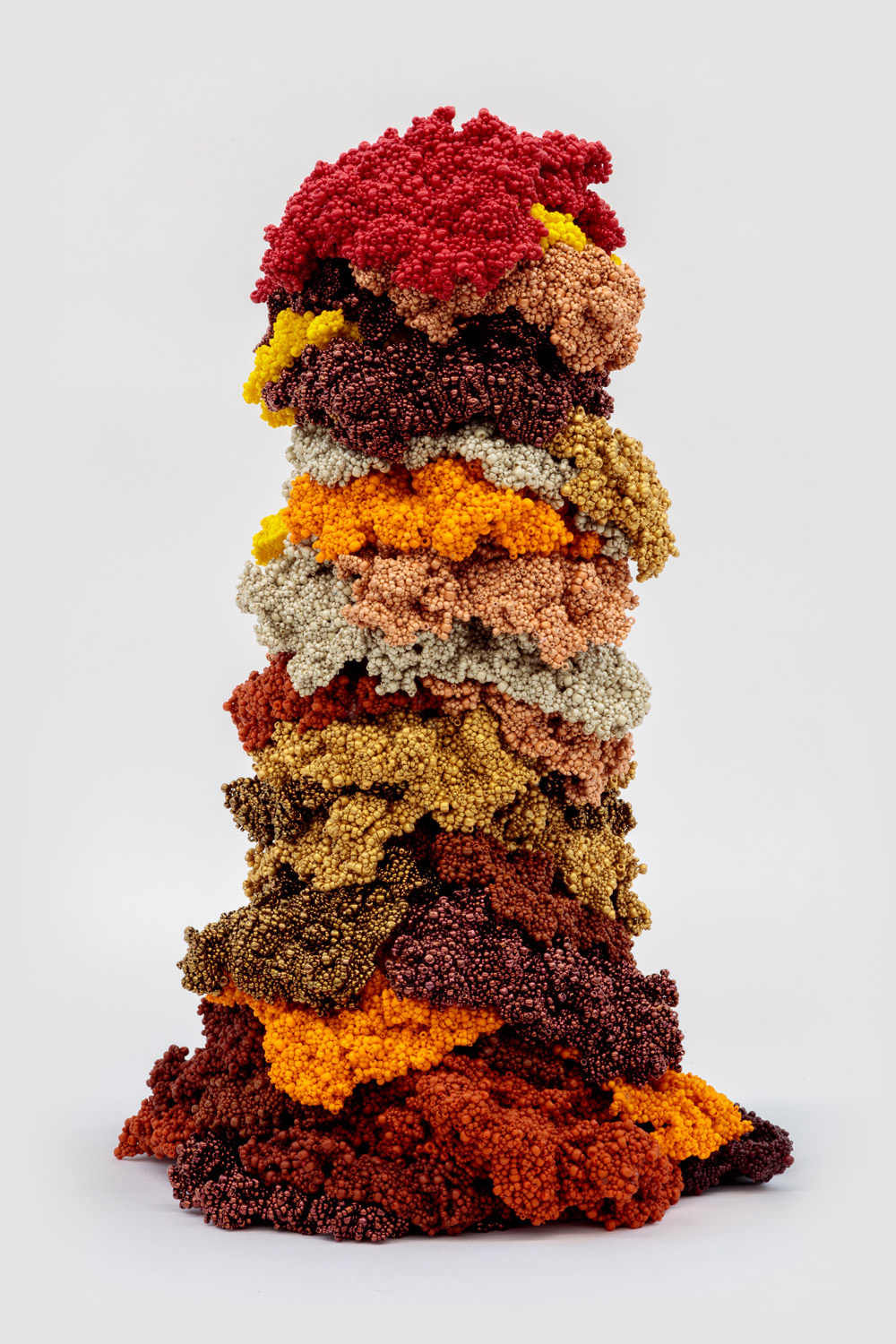
Image courtesy of the artist and Lehmann Maupin.
What were the goals that went into manifesting this book?
A book is a funny project and an incredible opportunity because it lasts longer than an exhibition does. It sits there and keeps on talking. In the very beginning, I was having conversations with Isabel Venero, the managing editor of the book, who I've known since she was an intern at the New Museum on a show called “The Labor of Love,” which was my first exhibition ever. Isabel and I have had a lot of conversations about feminism and how it's changed and shifted. I think we wanted this book to be a launch pad for ideas about materiality, craft, feminism, women's work—whatever that even means because a lot has shifted and changed since Kitchen, 1991-6. We wanted to make a book that someone could look at, and not necessarily be predisposed to the visual experience of my work, but, rather, the ideas behind it. We wanted to make book that goes beyond what it is I make.
Something beyond the biographical. Did that reflect in how the book is organized? I noticed you put your earliest work, Kitchen, at the end.
I remember reading an interview with Laurie Anderson in the '80s and she talked about how she never looks at her past work. So, if she was doing an interview on the radio and they played one of her old records, she would put on a headset or walk out of the room, then they'd have to tell her when they were done and then she'd come back in. And that made a really profound impression on me because, if you're living all that time with what you've done in the past, you can never have the courage to just keep forging ahead and exploring new things. You're always living with outside pressures of conforming to what you've already done, and I've really tried to do that as an artist.

Image courtesy of the artist and Lehmann Maupin.
But with a book that’s kind of impossible.
You're sitting there in it. That was why putting Kitchen as a last image was exciting to me because it was saying, I don't wanna live with that. Thirty years and 300 pages later, a lot has happened since. So, we should start with the most recent and then peel it back.
But what about the beginning? You start with Adamson’s essay on saliva, which is a Kitchen-heavy essay.
I think if we were really gonna follow to the letter of the law, we wouldn't have started with that essay. We would've started with Cathleen Chaffee, and that's an essay I really loved a lot too. She delved where no one has ever gone before with the way she talks about abstraction. She gave my work a good old-fashioned art history essay without any psychodrama about my past or my childhood, you know what I mean? But, there was also something unexpected about Adamson's essay. I really loved starting with the abject, which turns your head around. I think all of us were trying to surprise people the whole time.
Absolutely. It sounds like you were surprising yourselves too.
We made this book right in the middle of the pandemic, the worst part of the pandemic when we were all counting our lentils and wondering if we had enough toilet paper. I would get these calls from Isabel and she'd wanna talk about the book, and it would seem crazy, but it was also immensely pleasurable. The very cover of the book features a work called Sunset or Sunrise at the End of the World, and I think we wanted the book to feel like that. Beauty matters. And maybe it matters more than ever. I argued for craft for 30 years, and now I really think the beauty argument is more important and necessary than ever. The pleasure of looking is actually something very profound. I really wanted the book to argue for it, and not to step over it to get to the next place, but rather to pick it up and say beauty matters. Why does it matter? It matters because the world is full of ugliness and horror, and holding the line and making something beautiful in the middle of all of that is what makes us human.
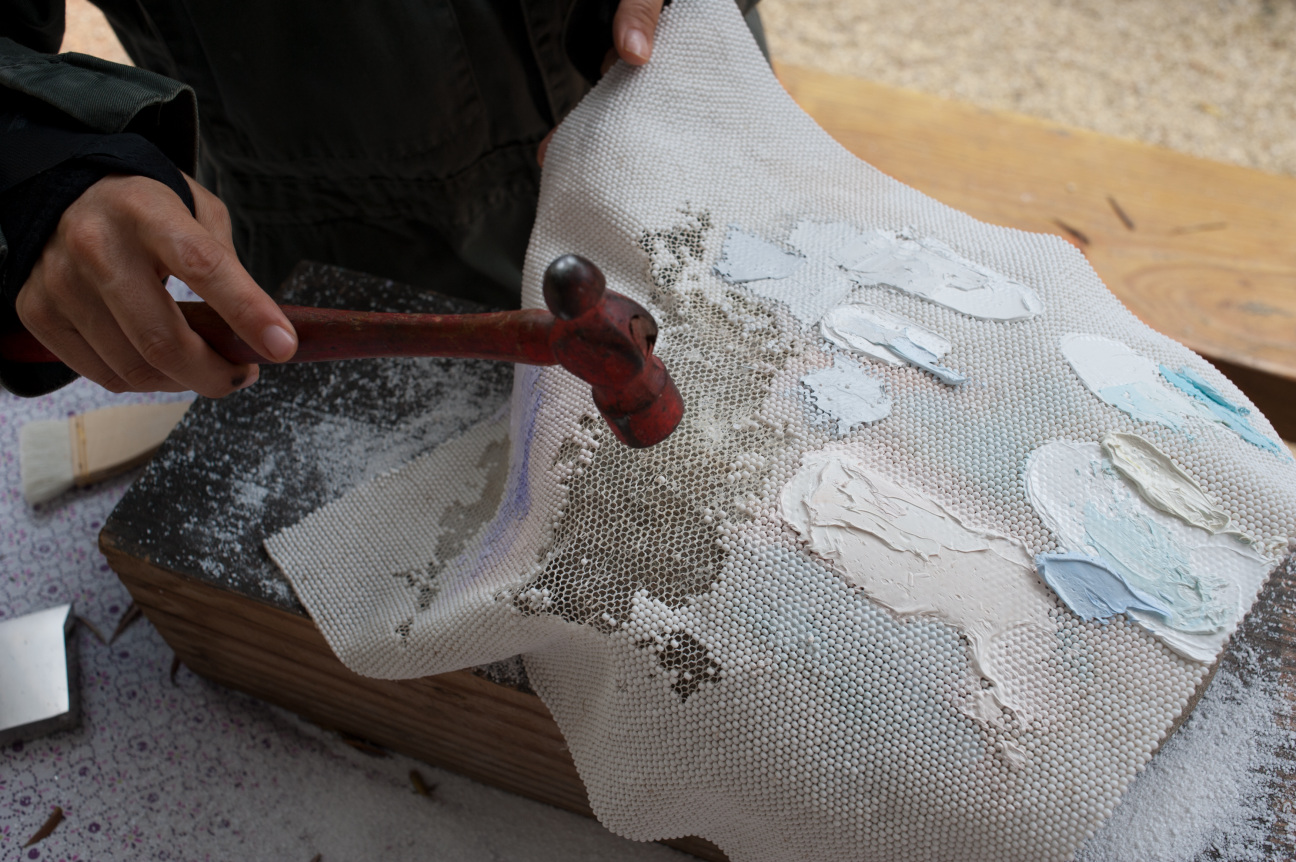
Photography by Mick Haggerty. Image courtesy of the artist and Lehmann Maupin.
What made you make this monograph now?
Rizzoli approached me and said, "it's time." We did one about 15 years ago, and they asked me if we could do another. It's a real honor to have a book because it's a real opportunity to try to make the work bigger than itself and to make a meaningful experience on the page—if that’s even possible for someone like me.
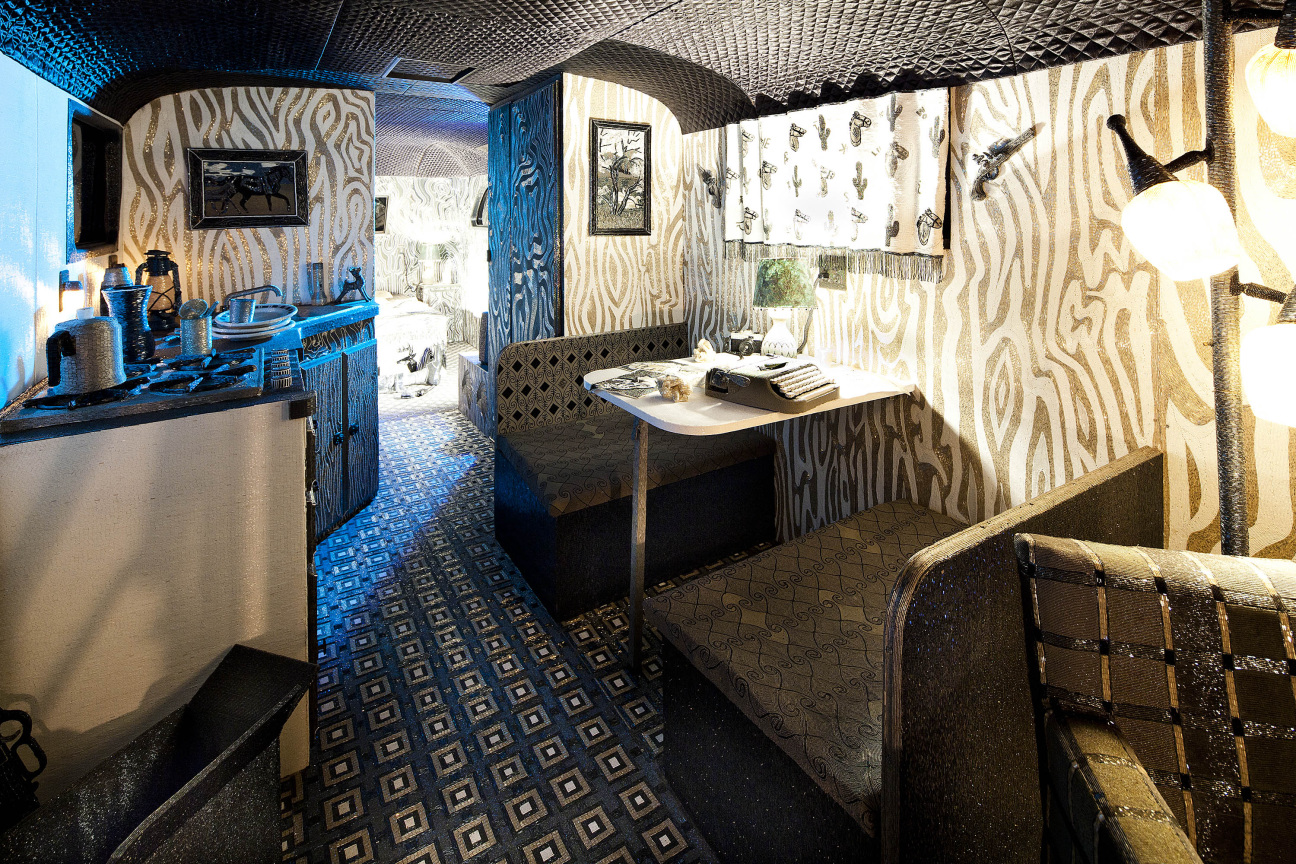
Image courtesy of the artist and Lehmann Maupin.
I was wondering about rhythm in relationship to your work. You operate at the speed of tedium. What’s it like switching into the clip of a different medium?
It is a different way of putting a creative hand on something, but it is so much like my work because there's always a tipping point when I'm working where something repetitive breaks out into something that you didn't expect. The tedium opens out into pleasure. There's a tipping point in everything, almost like a relentless quality that happens in slogging, slogging, slogging. And then boom, you have this thing. And I think that happens with everything, no matter if you're writing something or if you're painting it, or if you’re pacing a layout.
Do you feel like youre ever going to lose your touch?
I used to feel that way. One of the things that I try to bring to the work now the idea is that everything I do is connected. I used to keep different notebooks on all the different subjects and now I keep one. Everything goes into everything. You never know where the next idea is gonna come from, so working with your full attention is important.
Liza Lou is available to purchase now.

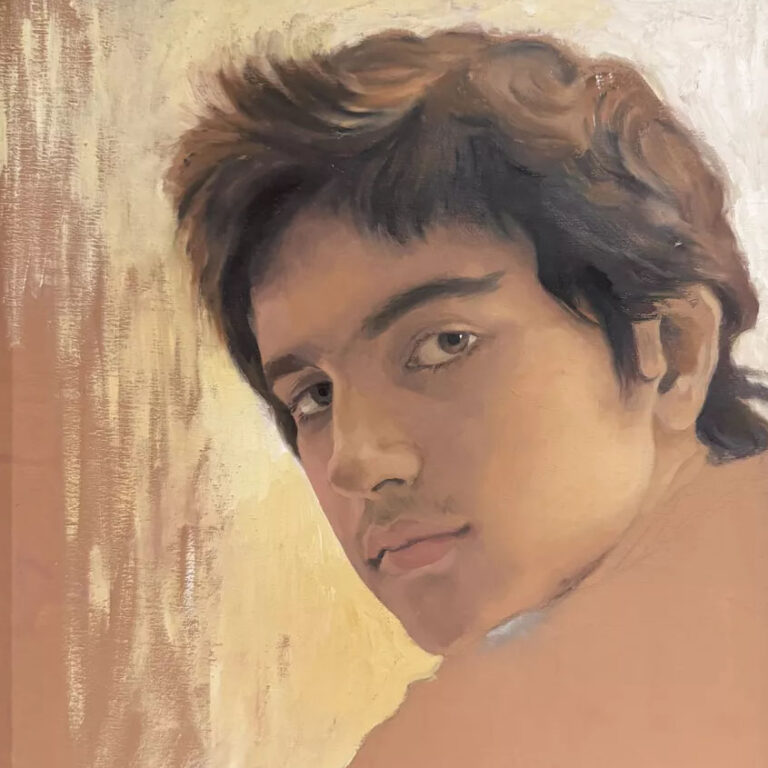
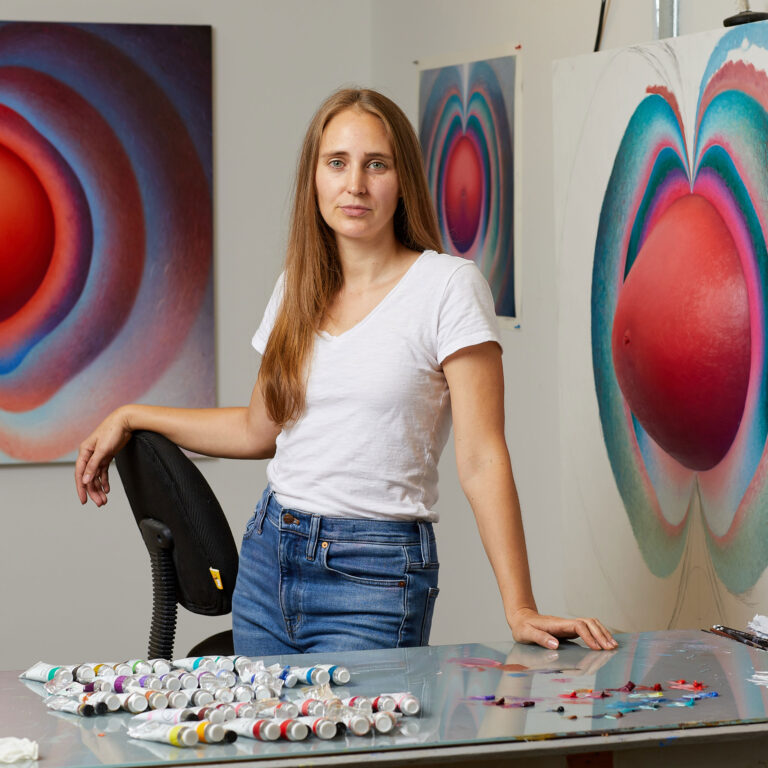

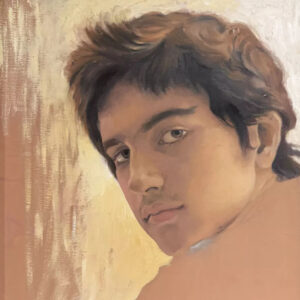
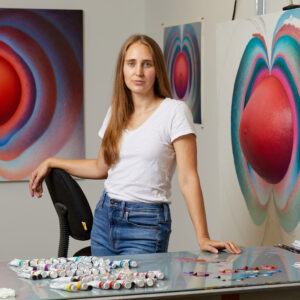




 in your life?
in your life?

